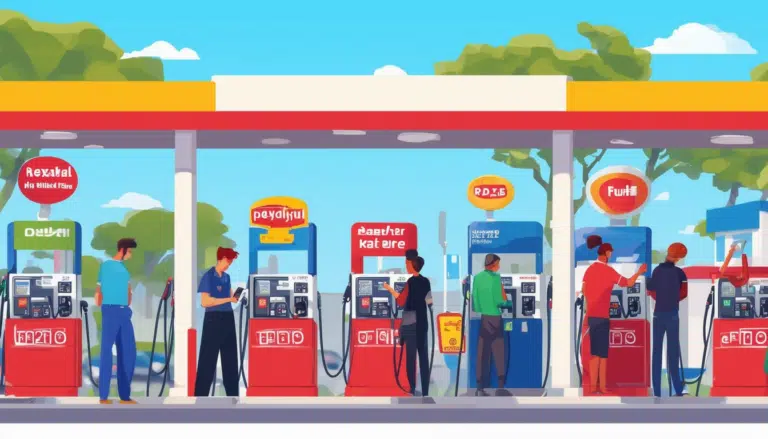How to calculate your energy efficiency and save fuel

Energy efficiency has become a key concept for those seeking to reduce their expenses and minimize their environmental impact. Calculating the energy efficiency of a home is a process that allows one to identify the energy consumption of different systems, such as lighting, heating, and appliances, comparing it to optimal operating standards. There are various tools and methods to carry out this evaluation, which not only favor fuel savings but also promote a more sustainable lifestyle. Below, we will explore how to measure this fundamental aspect and what steps to follow to achieve more efficient and responsible consumption.
Energy efficiency is a fundamental concept for reducing energy consumption and, in turn, the associated costs. In this article, we will explore how to calculate the energy efficiency of your home, as well as some strategies to save fuel. You will learn to identify the factors that influence your energy consumption and how to apply simple methods that will help you reduce your monthly costs.
Definition of energy efficiency
Energy efficiency refers to the effective use of energy to achieve the same results, thus reducing consumption. In the context of households, this implies that appliances, heating, and lighting operate optimally without wasting resources. It is essential to measure this performance to understand the impact of our daily activities on energy consumption.
How energy efficiency is calculated at home
Calculating energy efficiency in your home can be done by obtaining the Energy Efficiency Certificate (CEE). This certificate evaluates the energy consumption of your installations compared to their ideal performance. From this assessment, the efficiency class can be determined, ranging from grade A, most efficient, to grade G, indicating high consumption.
Measurement of energy consumption
To carry out the calculation of energy efficiency, it is crucial to measure energy consumption in different areas of your home, such as lighting and heating. This data can be obtained using energy meters or from your electricity and gas bills. Calculate the consumption in kWh (kilowatt-hours) and compare it with the average consumption in similar homes to get a clear idea of your position.
Identification of improvement areas
Once you have a clear understanding of your energy consumption, the next step is to identify the areas where you can improve. Some of the factors to consider include:
- Appliances: Ensure that your devices have energy efficiency labels, preferably class A or higher.
- Insulation: Improve the insulation of your house to reduce heat or air conditioning loss, which significantly contributes to energy savings.
- Lighting: Replace traditional bulbs with LED lights that consume less energy and have a longer lifespan.
Energy saving calculators
Nowadays, there are various online energy saving calculators that allow you to input data about your current consumption and the type of technologies you use. These tools provide estimates about how much you could save by making specific changes in your home. For example, you can assess the impact of replacing old appliances with more efficient models.
Strategies for saving fuel
In addition to calculating energy efficiency, it is vital to implement strategies to save fuel. Some recommendations include:
- Regular maintenance: Carrying out proper maintenance of your heating and cooling equipment ensures they operate optimally and without energy waste.
- Intelligent heating use: Consider adjusting the thermostat and using timers to heat your home only when necessary.
- Automation: Installing smart systems can optimize energy use by adjusting lights and temperature based on your presence in the house.
The environmental impact of energy efficiency
Improving energy efficiency not only has economic benefits but also significantly contributes to environmental sustainability. By reducing energy consumption, we decrease greenhouse gas emissions, contributing to a healthier future for our planet. Every small change in our daily habits can have a big impact in the long run, both on our finances and on the environment.
Innovations in engine technology, like the one you can see in this article, are also transforming the automotive market and helping to significantly reduce fuel consumption.
Therefore, by calculating and improving your energy efficiency, you will be taking important steps towards a more sustainable home and a more responsible use of resources.
Additional Resources
If you are interested in delving deeper into the subject, explore some additional resources that offer valuable information about emerging technologies that can help you further optimize your energy spending.
Additionally, consult this list of economical options that stand out for their efficiency in fuel use. Every effort you make can contribute to a greener and more sustainable future.
Finally, do not forget to obtain more information about specific technologies designed to help households reduce their energy costs. As you progress on your journey toward energy efficiency, you will find that every small adjustment makes a difference in the long run.
For more details on innovations in engines, visit this interesting article that explores new technological solutions in the automotive field.
Understanding energy efficiency is essential for optimizing the use of energy in our homes. In simple terms, energy efficiency refers to how we utilize the consumed energy to carry out different activities, from lighting our houses to heating water. To calculate the energy efficiency of a property, it is vital to measure energy consumption in various applications, such as lighting and heating, and compare it with the actual needs of each of these systems.
A useful tool for conducting this measurement is the Energy Efficiency Certificate (CEE), which provides clear information about the energy performance of a building. This certificate is based on criteria such as thermal insulation, the use of efficient appliances, and the installation of appropriate heating systems. By evaluating these factors, we can identify areas for improvement and, therefore, optimize the energy consumption of our home.
Moreover, to facilitate the calculation of energy savings, there is the option of using specific online calculators. These tools allow you to enter data about current consumption and the technologies used, providing information on potential savings in terms of fuel expenses and CO₂ emissions. By implementing simple changes, such as replacing bulbs with LED options or upgrading appliances to more efficient models, it is possible to see a significant decrease in energy consumption.
Lastly, adopting sustainable habits in daily routines can result in considerable fuel savings and improvements in energy efficiency at home. From unplugging inactive devices to adjusting the thermostat temperature, every small change counts towards a more sustainable and efficient future.




